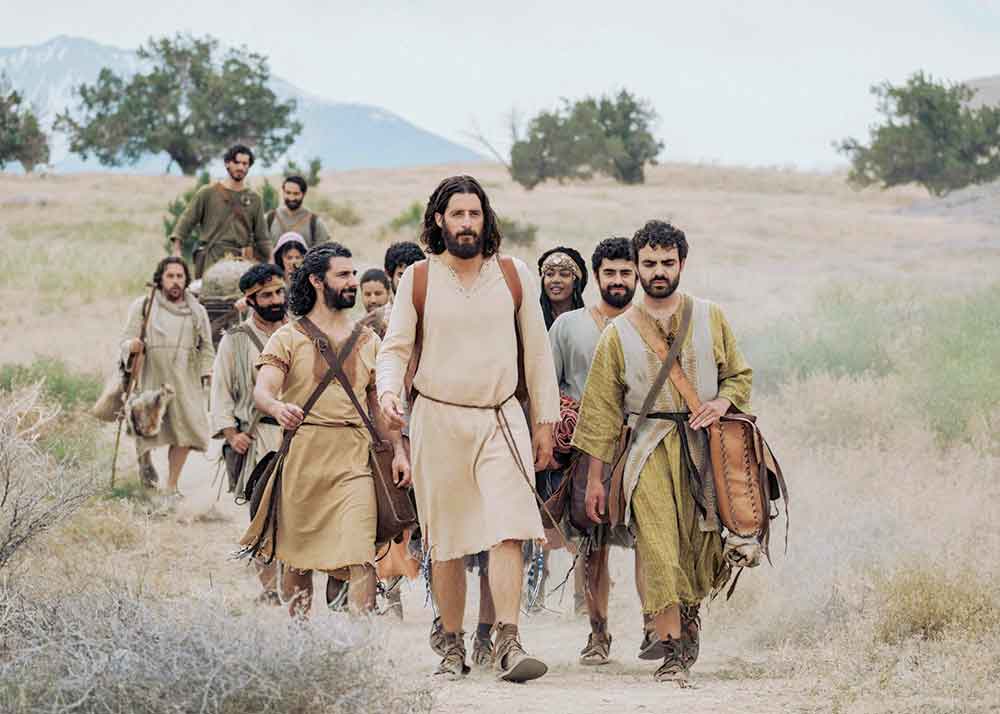Dallas Jenkins, creator of The Chosen, shares his thoughts on why this dramatization of the life of Jesus has kept viewers enraptured
The Chosen, the TV show about the adult life and ministry of Jesus of Nazareth, demands no spoiler alerts. Most viewers who have followed the multi-season series since 2017, depicting the Son of God’s journey from humble beginnings to Messiah, know how this story ends. Yet millions of viewers are not just tuning in to watch this show bring the ultimate biblical tale to its dramatic conclusion, they are funding nearly the entire project.

Dallas Jenkins, the creator, writer, director and producer of The Chosen, knows he has tapped into something that goes far beyond a faith-based audience’s loyalty to biblical adaptations. “Almost every other Bible-based project tends to make it feel like Jesus and the disciples, and even the enemies of Jesus, are stained glass windows or statues,” says Jenkins. “Because Jesus is essentially the founder of the greatest spiritual movement of all time, we deify him — which is good — but we forget that not only was Jesus also a human, but his followers were as well. What we’re doing is revealing their humanity. That’s what seems to be the code that we’ve cracked.”

This means not only delving deeper into the tragedy and pain that befalls the Son of God and his followers, but letting the characters in the show have . . . fun? “The humour is my favourite part, and has been kind of a secret sauce in the portrayals,” Jenkins reflects. His lead actor, Jonathan Roumie, agrees that it is the relatability in Jesus that puts the rest into perspective. “Jesus experienced the fullness of humanity, the spectrum of emotions, just like all of us do, and people aren’t used to that,” he says. “Wait, he laughed? He danced? He drank wine? What do you mean? He got angry? He was annoyed. He was frustrated. He sweat, he bled. I think it’s shocked people and made them realize, ‘This dude was real.’ It makes the acts that he made in his life of sacrifice so much more relevant and impactful.”
Yet, some of the storylines that have given humanity to Jesus and his disciples are also what draw ire from certain viewers. “We Christians care very deeply about the truth, and we have very strong feelings about who Jesus is and the character of God and the theology of our faith. Some people are going to be very angry if they feel like Jesus is portrayed in a way that contradicts scripture,” says Jenkins. “Whenever you do a big storyline that isn’t fact, as in, we don’t know that something like that happened — and it probably didn’t — the pressure to make sure we’re still capturing capital-T truth — that if this would have happened back then, this is how it would’ve gone, and this is how Jesus would’ve reacted to it — that’s a lot of pressure.”

That said, unfavourable audience reactions are a weight Jenkins has embraced by now. “When I made the decision to not go verse by verse, do a reenactment and just make all the characters feel like saints, I knew there were going to be people who don’t like this,” he says. “But we have experts and consultants to make sure that I’m not going too far outside the boundaries. And once you get past that, it’s exciting to imagine what it could have been like. What has resulted is joy.”

On screen, as the series moves into season four, the joy of witnessing Jesus perform miracles like walking on water and the feeding of the 5,000 is now making way for great expectations and, in some ways, even greater confusion. “All of our main characters have witnessed something extraordinary. Now it’s time, in their minds, for Jesus to assert his dominance and his leadership as the Messiah. ‘Now we’re going to overcome our oppressors. We’re going to unify the people and lead them against our enemies and restore our leadership as a people.’ And Jesus continues to subvert expectations,” Jenkins explains. “Season four is the journey towards Jerusalem with a group of people who are confused at times. They’re sad. We experience some devastating moments in this season, and they have to wrestle with all that. It’s by far our most challenging season, our most emotional season, and it’s the season that really takes us to what we all know is coming.”
With a total of seven seasons planned, the sixth of which is said to be entirely dedicated to the crucifixion, the pace of The Chosen feels like it is picking up rapidly. “The reason why seasons three and four feel more propulsive is not just the story beats, but because you know the people so well that when these things start happening to them, you really feel it,” says Jenkins. These are profound events that, according to leading man Roumie, even affect Jesus himself. “I think he’s affected by tragedy and sorrow on an emotional level that as humans we might not even be able to reach. What I can only do is try to give as much to every colour of the emotional spectrum, as Jonathan, in order to honour and serve the character of Christ in the show and Jesus in my own life, and hope that I get it close.”
The Chosen airs Sunday, September 22 on KTLA
